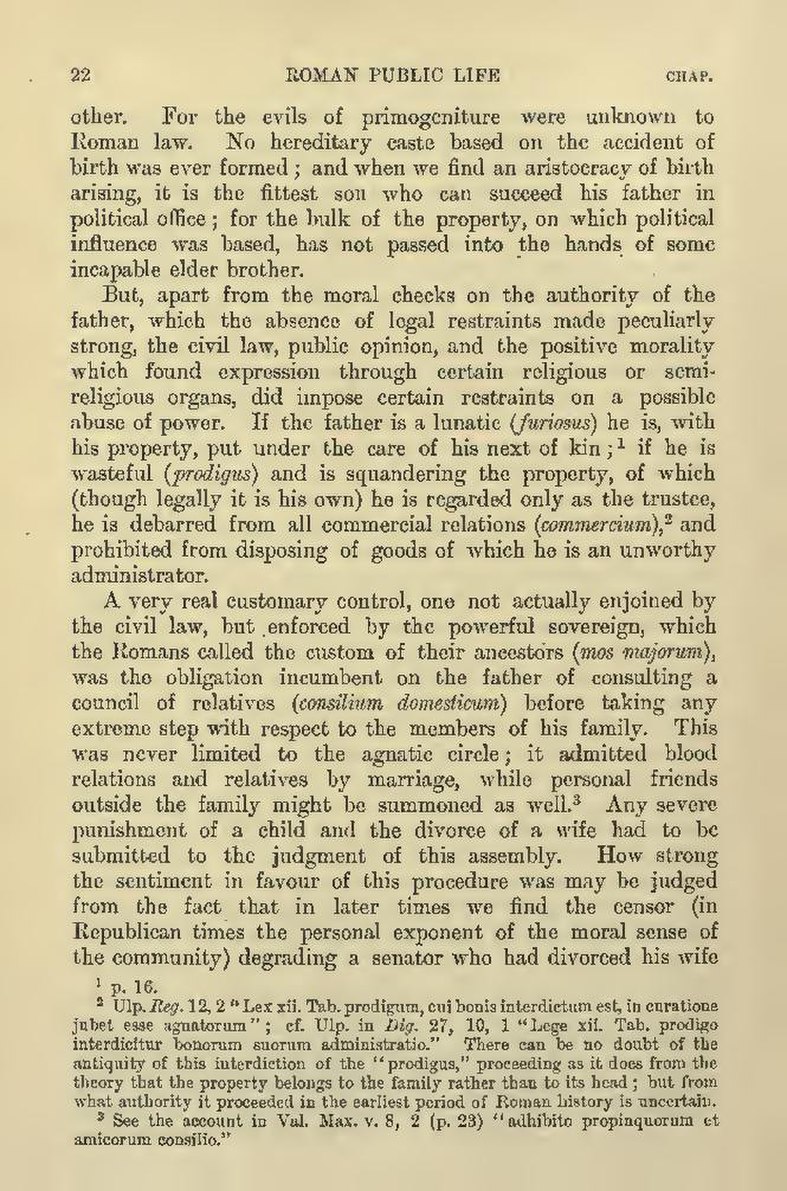other. For the evils of primogeniture were unknown to Roman law. No hereditary caste based on the accident of birth was ever formed; and when we find an aristocracy of birth arising, it is the fittest son who can succeed his father in political office; for the bulk of the property, on which political influence was based, has not passed into the hands of some incapable elder brother.
But, apart from the moral checks on the authority of the father, which the absence of legal restraints made peculiarly strong, the civil law, public opinion, and the positive morality which found expression through certain religious or semi-religious organs, did impose certain restraints on a possible abuse of power. If the father is a lunatic (furiosus) he is, with his property, put under the care of his next of kin;[1] if he is wasteful (prodigus) and is squandering the property, of which (though legally it is his own) he is regarded only as the trustee, he is debarred from all commercial relations (commercium)[2] and prohibited from disposing of goods of which he is an unworthy administrator.
A very real customary control, one not actually enjoined by the civil law, but enforced by the powerful sovereign, which the Romans called the custom of their ancestors (mos majorum), was the obligation incumbent on the father of consulting a council of relatives (consilium domesticum) before taking any extreme step with respect to the members of his family. This was never limited to the agnatic circle; it admitted blood relations and relatives by marriage, while personal friends outside the family might be summoned as well.[3] Any severe punishment of a child and the divorce of a wife had to be submitted to the judgment of this assembly. How strong the sentiment in favour of this procedure was may be judged from the fact that in later times we find the censor (in Republican times the personal exponent of the moral sense of the community) degrading a senator who had divorced his wife
- ↑ p. 16.
- ↑ Ulp. Reg. 12, 2 "Lex xii. Tab. prodigum, cui bonis interdictum est, in curatione jubet esse agnatorum"; cf. Ulp. in Dig. 27, 10, 1 "Lege xii. Tab. prodigo interdicitur bonorum suorum administratio." There can be no doubt of the antiquity of this interdiction of the "prodigus," proceeding as it does from the theory that the property belongs to the family rather than to its head; but from what authority it proceeded in the earliest period of Roman history is uncertain.
- ↑ See the account in Val. Max. v. 8, 2 (p. 23) "adhibito propinquoram et amicoram consilio."
